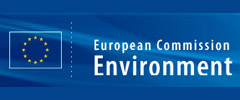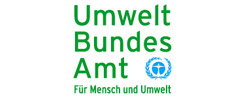Hundreds of thousands of marine lives in Gulf of Mexico are at stake
Sea life in Mexican Gulf is facing death by oil, its cancer-causing components with addition of toxic chemical dispersants. It can all cause fish, seabirds and dolphins' death
06.08.2010 |Sea life in Mexican Gulf is facing death by oil
Dispersants are supposed to break oil into smaller pieces that should sink in the water column and form so called “bite size” packages of poison all the way to the sea floor.
It means that all sea life is in danger, including phytoplankton, zooplankton, and tiny shrimps. They are all under oily siege. Long-term effect of oil in the sea will be even bigger. It will especially affect the top predators, i.e. tuna, sea turtles, dolphins and sharks.
Recently, BP concern refused to use less toxic and more effective EPA-approved dispersants. It means that the risk of sea life death will not get lower. It is worth to notice that any of chemical dispersants can be used without putting sea life into risk and it should not be used on massive scale. And what is more, BP is planning to release 800 000 gallons more of COREXIT into the Gulf. It means that fragile ecosystem of Gulf will have to face even a greater risk and danger.
This entire story shows how important it is to regulate the control system of reckless use of toxic chemicals in the United Stated. The US EPA and NoAA have to take a strong stand and prevent further release of any toxic chemical dispersants into the Gulf. Every day with toxic chemical dispersants in Gulf’s ecosystem puts it into greater risk of total damage.
To learn more about this topic, read: For Gulf Sea Life, A Fate Far Worse Than Death By Oil by Susan D. Shaw, DrPH
Related News
Human Biomonitoring for Europe
Vienna, 26 September: stakeholder forum
28.09.2018
WECF sends letter to Dutch Secretary of State concerning EU policy on EDCs
In a joint statement WECF and the EDC Free Coalition ask Dutch State Secretary Dijksma to insist on major changes at the Environmental Council meeting to protect our health and environment.
21.06.2016
Commission's EDC criteria proposal: More humans will have to be harmed before action is taken
The European Commission presented today its proposal for criteria to identify endocrine disrupting chemicals (EDCs). WECF and the EDCfree Coalition condemn strongly the decision.
15.06.2016
WECF film "How to protect children from EDCs" now available in Spanish
Pregnant women know it is important to avoid alcohol, nicotine and certain foods. However, what is less well known is that many everyday products contain pollutants that can also be harmful to your baby. WECF's film gives practical advice on how to avoid exposure to EDCs. It now also available in Spanish.
13.06.2016




































